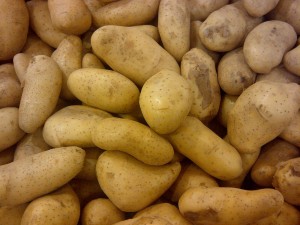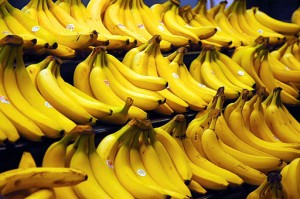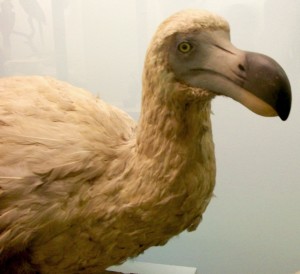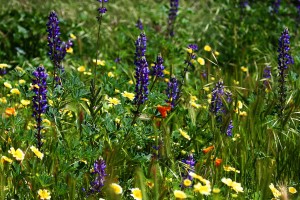
On March 11, 2011, Japan was struck by an earthquake and tsunami that would eventually prove to be the world’s costliest natural disaster. The main problem was not the earthquake itself – losses were minimized thanks to Japan’s well-designed, earthquake-resistant infrastructure. Thirty minutes after the earthquake, however, a massive tsunami struck the north coast, knocking out cooling systems at the Fukushima Daichi nuclear power plant. The plant’s nuclear fuel began to overheat, leading to a nuclear operator’s worst nightmare – core meltdowns, hydrogen explosions that fractured containment vessels, and massive releases of radioactivity to the environment. The tsunami was foreseeable – many scientists had warned of the danger. The real problem was that the nuclear power plant lacked a number of basic safeguards and back-ups. In particular, the cooling system lacked adequate redundancy (basically a “Plan B” in case “Plan A” doesn’t work) a violation of basic engineering principles and common sense.
The real problem was that the nuclear power plant lacked a number of basic safeguards and back-ups

By Tahir mq (Own work) [CC BY-SA 3.0 (http://creativecommons.org/licenses/by-sa/3.0)], via Wikimedia Commons
My ancestors emigrated from Ireland to North America in the mid-1800’s as a result of the Great Irish Potato Famine. Approximately one million people died because of the famine, and two million people were forced to emigrate. The immediate cause was a fungal blight that spread during a series of cold, wet years, destroying Ireland’s potato crop, which many people depended upon for food. But like most disasters, there were other relevant factors. The main potato variety grown at the time was the Irish Lumper, which had little resistance to the fungal disease Phytophthora infestans. Over-dependence on one crop (the potato) and one variety (the Lumper) meant a lack of genetic diversity, contributing greatly to the disaster. In terms of food sources, all of Ireland’s genetic “eggs” were in one “basket”. Its like having a machine, factory or power plant with no back-ups – – if anything goes wrong, everything goes wrong.
In terms of food sources, all of Ireland’s genetic “eggs” were in one “basket”

Steve Hopson, www.stevehopson.com [CC BY-SA 2.5 (http://creativecommons.org/licenses/by-sa/2.5)], via Wikimedia Commons
Genetic diversity in crops helps to ensure our food security and economic security. Many of today’s agricultural products rely on just a few popular varieties and their wild “cousins”, from which they descended, are under threat from habitat loss. This is unfortunate, because those wild ancestors retain critical genetic diversity. The Cavendish banana is an extreme example. It is currently the main commercial banana, cultivated in most tropical areas and sold around the world. It is a clone, propagated from cuttings that originated thousands of years ago in Southeast Asia, probably in New Guinea, the Philippines or Malaysia. The jungles where the banana originated are shrinking due to deforestation and urban encroachment. Because of its clonal origins, the banana lacks the genetic diversity of fruits and vegetables that come from seeds and sexual reproduction (the banana itself is basically a failed seed pod). The banana industry may soon face a disaster similar to what happened to Ireland and the Lumper potato.
we often have no idea what we are losing until it is too late

By RanZag (Own work) [CC BY-SA 3.0 (http://creativecommons.org/licenses/by-sa/3.0) or GFDL (http://www.gnu.org/copyleft/fdl.html)], via Wikimedia Commons
Unfortunately we are losing Earth’s species at an alarming rate. A study published by the London Zoological Society suggests that the number of species on Earth has fallen by roughly one half in the last four decades. Other studies put the estimate over this period at a somewhat lower value, around 25%. Even the lower number is frightening to scientists who understand how ecosystems function. Most people are familiar with the demise of species like the Dodo bird or the Passenger Pigeon, both of which were hunted to death by our ancestors. But over-hunting and over-fishing account for only a small fraction of species loss today. Habitat loss is probably the greatest threat. We are paving over our forests and grasslands, or plowing them under in order to replant with monogenetic food crops, at alarming rates. Tropical rain forests and high latitude boreal forests are both shrinking, cut down for their wood, replaced by crop lands, or drowned by dams. One problem is that we often have no idea what we are losing until it is too late. Once we notice that a given species is in decline, the number of individuals still alive may be too small to insure genetic diversity, or the populations may be split into smaller sub-groups in different areas, where they cannot interbreed. Some flora and fauna are probably lost before we know they exist.
Why is this important? It turns out that a healthy ecosystem is critical to our survival. It provides clean air to breath and clean water to drink. Bees and other wild insects pollinate our crops. Many medicines that we take for granted, including antibiotics, were originally derived from nature’s own organisms. As we overuse antibiotics, the bugs we are trying to combat become resistant. We will soon need to find new antibiotics. Healthy ecosystems function like a biological medicine chest, for medicines we will need in the near future. We destroy them at our peril (or the peril of our children and grandchildren).
Healthy ecosystems function like a biological medicine chest, for medicines we will need in the near future. We destroy them at our peril
Unlike many environmental problems, habitat loss is something that we can actually do something about. While we can’t stop growing crops for food, or turn our cities back to primeval forest, smaller steps can be taken that will help to preserve what’s left, and recover some of what’s been lost. Also unlike many environmental problems, it turns out that individuals can make a difference. Some farmers are starting to replant hedgerows between fields with native trees and shrubs to build wind-breaks, planting buffer zones between cultivated fields and ponds or wetlands to improve water quality, and planting different crop varieties. One farmer I know decided to harvest only one crop of hay per year, rather than two, allowing several species of birds that nest in the hay fields to successfully raise their chicks. A cost-benefit analysis suggests that this is economically efficient, reducing costs by a factor of two, while reducing overall yields, averaged over several years, by much less.
Modest regulatory change can have also a big impact. Protected areas on land and in the ocean generate significant ecological and economic benefits. It may also be important to connect protected areas. One area may contain a limited range of ecosystems, but some species require more diversity. For species that migrate, a connected series of protected ecosystems is critical. Ducks Unlimited, an international organization involving hunters in the US, Canada and Mexico, has been quite successful at preserving wetlands along migratory flyways, convincing hunters to observe bag limits, and getting rid of leaded shot to reduce lead pollution. Their success could be a model for many environmental groups.
Efforts by local groups can make a big difference. Of the approximately 25,000 known fish species, about 40% live in fresh water, many of them with limited distribution. Local conservation groups can promote preservation of nearby wetlands, ponds and streams where these species reside and bring up their young. One added benefit – these areas also help to recharge our ground water.
native species would provide new habitat, diversifying our urban environment

By Rennett Stowe from USA (California Wildflowers) [CC BY 2.0 (http://creativecommons.org/licenses/by/2.0)], via Wikimedia Commons
Even intensely urbanized areas can be improved. Too many urban areas are eco-deserts, barren expanses of concrete and asphalt that support little life beyond the human inhabitants forced by economic necessity to live and work there. Where there is vegetation, it is likely to be dominated by non-native species, which doesn’t provide much in the way of habitat or food for native birds and insects. Re-populating our cities’ parks and other green spaces with native plant species would help. Many cities and groups are starting wildflower initiatives, replacing non-native grasses and other plants with lower maintenance, better looking fields of “nature’s paint brushes”. Homeowners with big back yards can help. Too many of these yards are covered with broad expanses of sterile lawn cover, requiring frequent cutting, fertilizing and pesticide application, putting harmful nutrients and poisons into our groundwater, streams and rivers, most of which wind up in the coastal ocean where they harm fish and other marine species. Replacing some of that lawn with native species would not only provide new habitat, diversifying our urban environment, but also reduce homeowners’ maintenance costs.
It’s tough to win a world war once you’ve gotten rid of your best and brightest.
Prior to its 1939 decision to go to war, Germany decided to persecute its Jewish citizens. Many scientists and engineers were Jewish, and some of the best and brightest were able to flee the country. Most went to Britain and the US, where they helped the Allies develop radar, the atomic bomb, and a number of other weapon systems that ultimately contributed to the defeat of Germany and its Axis allies. It’s tough to win a world war once you’ve gotten rid of your best and brightest.

By Central Intelligence Agency (Enigma Machine Uploaded by liftarn) [Public domain], via Wikimedia Commons
Alan Turing, widely considered the father of the modern computer, was also a key figure in the race to break the Enigma codes that Germany used during World War II. When Turing began his work, Germany had a stranglehold on Britain as a result of unrestricted submarine warfare on civilian shipping. Cracking the Enigma is a big reason Britain eventually won the Battle of the Atlantic – convoys could be re-routed to avoid German “wolfpacks”-deadly concentrations of submarines that could otherwise devastate poorly defended merchant ships. Enemy submarines could also be targeted when they were on the surface for re-fueling, since rendezvous locations would be known in advance. Turing made critical contributions to his nation’s survival.
It’s tough to win in the market place if you’ve gotten rid of your best and brightest
In the early 1950’s, the British government decided to prosecute Turing for homosexuality. He was given the choice of prison or chemical castration. Given the level of homophobia at the time, a prison sentence would likely have been a death sentence, and he chose castration. He died within two years, at the height of his career, either from suicide or poisoning. Computing and internet-related activities now constitute a Trillion dollar a year global industry. It’s impossible to know what Turing’s future contribution might have been to this industry, but it’s reasonable to speculate that he could have helped Britain play a dominant role, either through direct contributions, or inspiring the next generation of computer scientists. Instead other nations dominate the industry today. It’s tough to win in the market place if you’ve gotten rid of your best and brightest.
these nations are limiting their own success by limiting the contributions of half or more of their workforce
While most western nations have eliminated laws that discriminate against homosexuals, transgender individuals, and other minorities, some third world nations continue this unfortunate practice. Many also have cultural and sometimes legal restrictions on women’s rights. These same nations tend to be near the bottom of indices of economic development. This should not be a surprise – these nations are limiting their own success by limiting the contributions of half or more of their workforce.

By Haeferl (Own work) [CC BY-SA 3.0 (http://creativecommons.org/licenses/by-sa/3.0)], via Wikimedia Commons
The various countries of the European Union (EU) are currently involved in heated debates about immigration, as millions of refugees, mostly from the Middle East and Africa, flee their homeland for a better life abroad. While the EU is founded on the principle of open internal borders and free movement of peoples, the unprecedented numbers of refugees have clearly stressed the system. Germany alone has admitted nearly one million refugees in the last eighteen months, but other EU nations have been less generous. Hate crimes and other xenophobic activities have also risen across the EU. How Europe deals with this crisis is of interest to all civilized nations. In the future we can expect increased poleward migration from many equatorial countries, as people flee the negative consequences of climate change.
expect increased poleward migration from many equatorial countries, as people flee climate change
The US is also involved in a bitter internal debate about the role of immigrants in American society. Mexicans and Muslims are the current villains. US President Donald Trump has called Mexicans ‘criminals’, and promised to build a wall to keep them out (available data suggest that newly-arrived immigrants are at least as law-abiding as the average American citizen). Irish, Chinese, Japanese, German and Italian immigrants have all been targets of similar xenophobic attitudes in the past, but the country usually manages to rise above xenophobia and do the right thing. The US has historically been quite welcoming to immigrants. Most economists credit immigration as a key factor in US economic vitality. Immigrants bring fresh ideas and an entrepreneurial spirit to their new country. It would be a shame if a country that has long championed individual freedoms now takes a backward turn.
It would be a shame if a country that has long championed individual freedoms now takes a backward turn
This article is based in part on material published in Chapters Four and Eight of Curbing Catastrophe: Natural Hazards and Risk Reduction in the Modern World by Timothy H. Dixon
Download two free chapters, including Chapter Four: Japanese Earthquakes and Nuclear Power Plant Failures, from Tim’s book at: cambridge.org/Dixon-free
Latest Comments
Have your say!